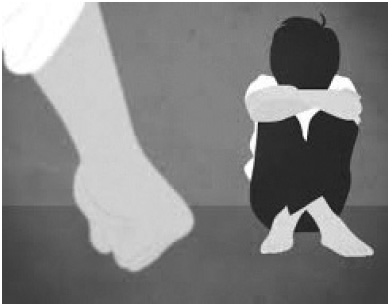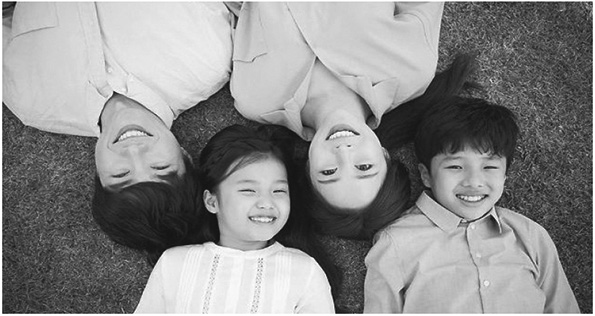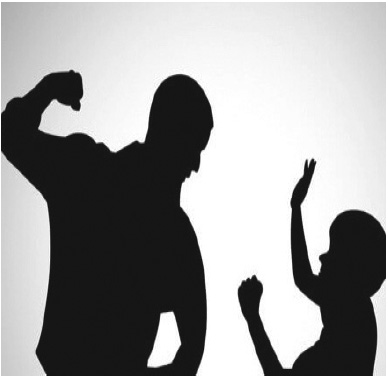Recently, a troubling series of violence and crimes against children have occurred, raising serious concern. Last year, a child abuse incident in Yangcheon-gu, Seoul, became a hot topic. The case, also known as the “Jeong-in Incident,” led to the death of an eight-month-old girl who was adopted when she was 16 months old. There have been several reports of child abuse against the family of the victim, but in all cases the parents were cleared of charges. A series of prosecution investigations revealed these facts, sparking a flurry of protests against the police, who cleared the victim’s adoptive parents despite the obvious evidence of abuse on the victim’s body. The Gangseo Children’s Protection Agency in Seoul, which was in charge of the case, was also criticized by the public for not protecting the victim, not cooperating with the police investigation, and helping to clear the suspicion of the parents. This case and a series of other child abuse cases have raised opinions that the punishment for child abusers should be stricter.
Child Abuse. What’s the definition?
According to the Children’s Rights Security Agency, child abuse means causing children under the age of 18, to be physically, sexually or psychologically violated. There are four types of child abuse: physical abuse, sexual abuse, psychological abuse, and neglect. First, physical abuse includes adult punishment, including direct and physical attacks on children, placing children at risk of serious injury or death, bruises, wounds, fractures, lacerations, repeated bad events, and harsh treatment. Not only direct physical harm, but also allowing physical harm or neglecting a child, is considered abuse. Also, physical punishment for infants under 36 months of age is judged to be an abuse regardless of the reason for punishment.
Second, sexual abuse refers to the act of requesting, encouraging, or forcing children to engage in sexual activities (whether or not they are paid for it), exposing external stimuli to children to meet their sexual needs, seeking or threatening children, having children make an appearance in pornographic media, and trafficking.
Third, psychological abuse, which is also called emotional abuse, is a kind of abuse where parents or foster parents, severely affect children’s cognitive, emotional or sociological development. It passes off with verbal, emotional threats, control, or confinement. Some examples include ignoring children’s feelings or insulting their personalities.
Fourth, neglect is where parents or foster parents are not providing what children need, and continuously paying no attention to them on purpose. Thus, it harms children’s health and welfare or disrupts children’s normal development. For instance, accepting children’s unauthorized absences falls under educational neglect and not vaccinating them in time, or not giving them adequate treatment for injuries or disease is medical neglect. The central children protection services published that 24.3% of people who neglect children said that they committed neglect because of social and financial stress and isolation in their ‘national children abuse status report.’
Why does child abuse happen?
Then, why does child abuse occur? According to the National Center for the rights of the child, the reasons are marital strife, unwanted pregnancies, abused parents, addiction (alcohol or drugs) financial problems, and domestic environment factors. Firstly, people who experience domestic violence or marital conflicts are more likely to commit child abuse than those who don’t. In fact, in June 2019, parents beat and killed their 2 years old child because of stress after a marital quarrel. This incident shocked many people. Second, a child from an unexpected or unwanted pregnancy has a bigger possibility to be abused and neglected. Women who experienced an unwanted pregnancy tend to be more vulnerable in mental health and is not likely to have a good relationship with the baby. Accordingly, the abuse rate is higher. Third, in the case of abused parents, which means that parents were abused during their childhoods, they have a higher tendency to abuse their children emotionally.
Most people who experienced child abuse in youth, regard physical and verbal violence as the natural right of parents, and also think that it is one of the means of communication. In connection to this, Pyo Chang-won said “We have to rescue victims before they become the perpetrators.” Because of this phenomenon, we are able to predict that child abuse can lead to more child abuse and we feel the need to prevent this. Fourth, substance-related issues (e.g. alcoholism and drugs) are an important factor of child abuse. Typically, alcoholism affects the brain a lot, and changes of personality result from changes in the cranial nerve caused by repetitive drinking. This can be a cause of domestic conflict directly related to child abuse. Also, child abuse brought about by social causes (financial problems, social isolation) is very common.
‘Child Abuse’, can be harmful to a child in every aspect?
The results of child abuse can be divided into psychological and physical effects. Symptoms of mental disorder that can appear in a child who has been abused in her youth are depression disorder, post-traumatic stress disorder, and anxiety disorder. Thus, the aftereffects can continue after they become adults. Especially, it can affect the aspect of child development a lot. Children adapt the practice of shouting or violent behavior and a rude attitude toward others, and develop a cynical personality. Also, children who experienced abuse can have difficulty in forming relationships or building trust with other people. The physical wounds associated with child abuse, which are usually easy to see, will heal relatively quickly. The emotional scars, on the other hand, take much longer to heal, and victims are often scared for life. Ahn Jung-kwang, a psychology professor at our school said, “Children can get a lot of mental disorders when they experience abuse. Typically, post-traumatic stress disorder can arise, and if so, victims may end up being emotionless. This is usually manifested in either becoming increasingly estranged from other people or disinterested in important work. Thus, the sensitive awakening continues.” and reminding us of the negative psychological effects of child abuse. 
“When children are rescued from dark aspect of their life, and one of us make effort to change child’s life, light and heal are gathered to our life.”
- Oprah Gail Winfrey
‘Child Abuse’ is getting worse, what is the solution?
First, the number of reported cases is far less than the number of cases determined to be actual child abuse. This problem occurs because it is not easy to establish that parents abused a child when they emphatically deny any wrongdoing while under investigation. In these cases, no matter how badly a child is being abused, no action can be taken. Actually, in Korea, when guardians exercise parental rights on their children, there isn’t any legal basis to separate them, nor a way to punish them. The only remedy is termination of parental rights which can only be requested by relatives of the children or a prosecutor. This restricted law can be sanctioned when giving a punishment. Therefore, laws obviously need to be renewed so that no matter how parents abuse the children, they will be accountable and punishable.
By Kim Ji-min | jimin41@cbnu.ac.kr
By Yang Jin-A | 2016020101@cbnu.ac.kr
By Gwon Ji-ye | whodrk@cbnu.ac.kr


 All
All Feature
Feature






 Kim Ji-min&Yang Jin-A
Kim Ji-min&Yang Jin-A











